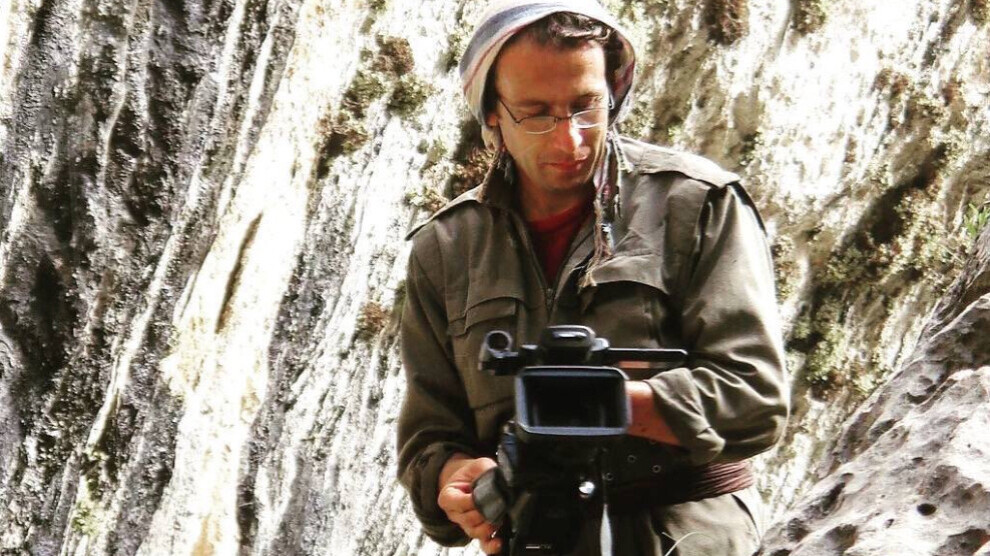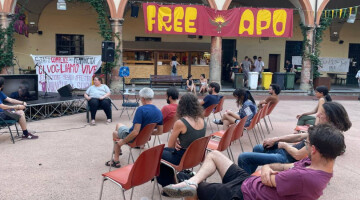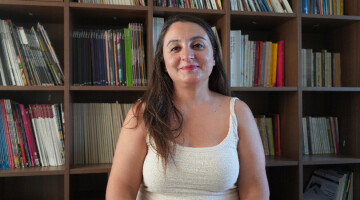On April 1, 2008, Kurdish filmmaker, photographer and guerrilla fighter Halil Uysal, also known as Halil Dağ, was martyred in an ambush by the Turkish army in the Besta region in the countryside of Şırnak province in northern Kurdistan. With his death, the Kurdish freedom movement lost not only a fighter, but also one of its best artists and chroniclers.
The TEV-ÇAND Cultural Committee of the Kurdistan Workers’ Party (PKK) released an obituary in memory of Halil Uysal, stating the following:
“Halil Uysal was an author, photographer, filmmaker, fighter, companion and a man of the mountains. He was the closest and most honest friend of the mountains. He worked uninterruptedly for years on the peaks of the mountains. He continued his art and struggle with great energy and endless love. He left us his full life as a priceless legacy.
Comrade Halil used to say: 'We just have a camera and comradeship.' With his camera and his comradeship, he gave voice to the stories of his heart and the mountains. He wrote about the warmth of life in the mountains, the harshness of war, untimely farewells, the laughter and enthusiasm of the guerrillas and their memories. He was present in the hottest moments of the war, delivering unforgettable news. He took the photographs of the guerrillas 'with his heart'. He bequeathed us their looks, memories, beliefs and words. He brought the stories he witnessed to life with his films. He wrote poetry; with his subtle emotions, deep thoughts and ideology, and transformed the aesthetics of guerrilla life into literature. With these works, he became one of the greatest propagandists of the Freedom Movement.
Comrade Xelîl loved the mountains. He wandered through steep cliffs, deep valleys, high hills, searching for all the hidden and unfinished stories. He lived and captured moments of disappearance, moments of sadness and grief in his own unique way. He was present in moments of war, action and victory. He also took part in journeys, night chats, dances and guerrilla songs. He lived with the water, soil and fire of the mountains. Thus, he was able to create a mountain cinema. Despite all the difficult conditions and 'impossibilities', he was able to create historical works. Comrade Halil's cinema was the cinema of the mountains of Kurdistan; it was the cinema of Kurdish heroism and beauty; it was the cinema of Kurdish freedom. It was the cinema of the new, heroic Kurd; it was the cinema of the Kurd who freed himself from being an 'object' of history, who became the subject of his own life, who realized his own existence.
Comrade Halil was an example of comradeship in his life. In his writings and films, he gave a special place to the Free Kurdish Women and the Women's Liberation Movement. To quote his words: 'The Kurdish woman should be able to enter the cinema with her thoughts and look at this world with her own eyes. Her big, beautiful eyes, her gaze that goes beyond an object, her way of understanding people and the world, can lead Kurdish cinema.’
Comrade Halil was passionate about free life. He loved the guerrillas and Leader Apo [Abdullah Öcalan]. He always tried to be worthy of his promise to Leader Apo. In his writings, he talked about the excitement of the moments he spent with Leader Apo. With an Apoist stance, he continued his struggle in the free mountains for years.
He also enjoyed traveling and the North. His last project was called 'The Travelers of Mount Ararat'. He crossed to the North (Kurdistan) with the guerrillas and made his way to the peaks. He always meant to go higher and higher.
It is our promise and our duty to continue his journey. As Comrade Halil's companions and followers, we will continue his struggle and realize his dreams. With the love of life and comradeship we learned from Comrade Halil, we will always struggle until we build a free life with Leader Apo.
Comrade Halil is immortal.”















